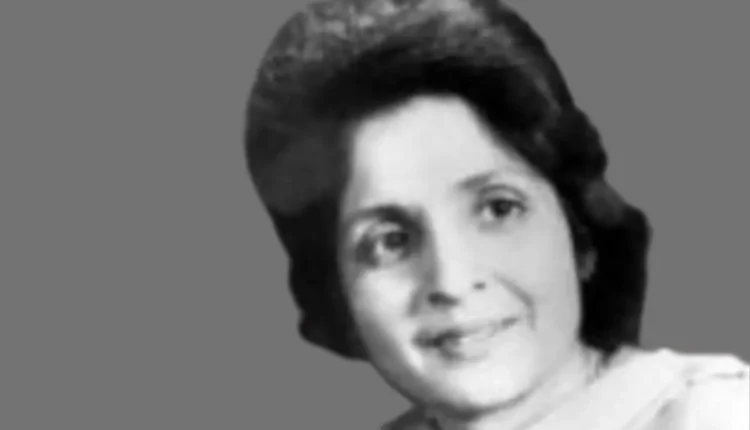In the annals of South African history, the name Soromini Kallichurum stands as a beacon of inspiration, not just for women but for all who dare to challenge the status quo. Soromini Kallichurum (1932 – 21 December 2002) was a trailblazing medical doctor and professor whose legacy is woven into the very fabric of South African medical education. As the first woman to serve as Dean of the medical faculty at the University of KwaZulu-Natal, she broke barriers and set new standards for excellence.
Early Life of Soromini Kallichurum: The Seeds of Greatness
Soromini Kallichurum was born in the small town of Ladysmith, KwaZulu-Natal, a place that, at the time, was far removed from the epicenters of progress and opportunity. Her father, S. Kallichurum, was a teacher, and from him, young Soromini inherited a love for learning and an unyielding determination to rise above the limitations imposed by society.
In 1950, she embarked on a journey that few women of her time dared to undertake: she became one of the first twelve undergraduates enrolled in the “non-white” section of the University of Natal. This bold step marked the beginning of a lifelong commitment to education and healthcare.
Soromini’s academic journey was marked by perseverance and brilliance. In 1957, she earned her medical degree from the University of Natal, a significant achievement at a time when opportunities for non-white individuals were severely restricted by the apartheid regime.
But Soromini was not one to be satisfied with mere accomplishment; she sought excellence. In 1967, Soromini Kallichurum earned a Doctor of Medicine (D.M.) degree for her groundbreaking research on lung disease in black South Africans, a topic that was both politically sensitive and scientifically challenging.
Career: A Legacy of Firsts
The 1960s saw Soromini Kallichurum establish herself as a formidable medical researcher. Her work during this period contributed significantly to the understanding of diseases that disproportionately affected black South Africans, highlighting the intersection of medicine and social justice in her career. In the 1970s, she transitioned into private practice as a pathologist, but her heart remained in academia.
In 1978, history was made when Soromini Kallichurum was selected as the chair of the anatomical pathology department at the University of Natal. This appointment was more than just a professional milestone; it was a symbol of progress in a society that had long marginalized women and people of color. Soromini was the first woman to hold this prestigious position, breaking a glass ceiling that had previously seemed impenetrable.
But her journey of firsts did not end there. In 1984, Soromini Kallichurum achieved another historic milestone by being appointed Dean of the medical faculty at the University of Natal. Once again, she was the first woman, and notably, the first non-white person to ever hold that rank.
Her deanship was a testament to her exceptional abilities and her unwavering dedication to advancing medical education in South Africa. Under her leadership, the medical faculty thrived, producing graduates who would go on to serve their communities with distinction.
After retiring as a professor in 1994, Soromini Kallichurum continued to shape the future of healthcare in South Africa. She became the president of the Interim Medical and Dental Council of South Africa, a position she held as the country transitioned out of apartheid.
During her eight-year tenure, Soromini Kallichurum oversaw the organization’s transformation into the Health Professions Council of South Africa, ensuring that it adapted to the new socio-political realities of a democratic nation. Soromini’s leadership during this period was instrumental in guiding the medical profession through a time of significant change and uncertainty.
Personal Life: A Foundation of Love and Support
Behind every great woman is a support system that anchors her in the storms of life. For Soromini Kallichurum, this anchor was her husband, Karoonduth Rughubar. They met while she was in medical school, and their shared commitment to education and service formed the bedrock of their partnership.
Karoonduth, a teacher and later a school principal, understood the demands of Soromini’s career and supported her unconditionally. Together, they raised three daughters—Karuna, Ishana, and Ramona—instilling in them the same values of hard work, integrity, and the pursuit of excellence.
Soromini’s role as a mother was just as significant as her professional achievements. She managed to balance the rigors of a demanding career with the responsibilities of raising a family, setting an example of resilience and strength for her daughters. Her life was a testament to the fact that women could excel in both their professional and personal lives, and she paved the way for future generations of women to do the same.
Legacy: A Life that Continues to Inspire
Soromini Kallichurum passed away on 21 December 2002, but her legacy endures. She was a pioneer who shattered barriers and opened doors for others to follow. Her life’s work continues to inspire not just women in medicine, but all who believe in the power of education, perseverance, and the pursuit of justice.
Also Read:Devikarani Priscilla Sewpal Jana: A Trailblazing Lawyer and Anti-Apartheid Activist

